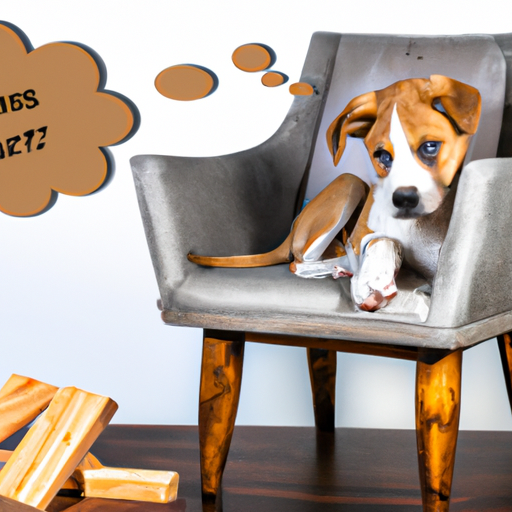Understanding Why Your Dog Chews on Wood
As a caring dog parent, it’s essential to understand that dogs chew for a variety of reasons. Just as a toddler explores the world with their hands, a puppy explores the world with their mouth. However, this behavior can persist into adulthood due to boredom, anxiety or simply because it feels good to chew!
Identifying and Removing Potential Hazards
To stop your dog from chewing on wood, you first need to remove potential hazards. Scan your home and garden for accessible wood items. This includes:
- Furniture
- Wooden toys
- Firewood
- Tree branches
- Wooden decks or fencing
Training Your Dog Not to Chew
Training your dog to stop chewing on wood is like teaching a child to refrain from touching a hot stove – it involves consistent, gentle guidance.
Here are some steps you can follow:
- Catch them in the act: React only when you catch your dog chewing on wood. Reacting after the fact will only confuse them.
- Distract and divert: Use a loud noise to distract them, then offer them an appropriate chew toy.
- Praise: When they start chewing on the toy, praise them to reinforce the correct behavior.
Providing Alternatives to Wood Chewing
Just telling your dog not to chew on wood isn’t enough. You need to provide them with alternatives. Here are some ideas:
- Chew toys: These are specifically designed to withstand vigorous chewing.
- Puzzle toys: These toys, filled with treats, keep your dog mentally stimulated.
- Edible chews: Bones, rawhide, or other edible chews can keep your dog’s mouth busy for hours.
| Type of Toy | Pros | Cons |
|---|---|---|
| Chew Toys | Durable | Need to ensure they’re non-toxic |
| Puzzle Toys | Mentally stimulating | May require supervision |
| Edible Chews | Delicious | Can add to caloric intake |
Consulting with a Professional
If your dog’s wood chewing habit is persistent, it may be time to consult with a professional. A dog trainer or a veterinary behaviorist can provide insights into why your dog may be engaging in this behavior and guide you on the best course of action.
FAQs
Q: Can wood chewing harm my dog?
A: Yes, wood chewing can cause splinters to lodge in the mouth or throat, blockages in the gut, and even toxicity if the wood is treated with harmful chemicals.
Q: Why is my adult dog suddenly chewing on wood?
A: It could be due to a change in environment, stress, or a lack of mental or physical stimulation.
Q: How can I make my dog’s chew toys more appealing?
A: Try different textures and flavors, or use a toy that can be filled with treats.



